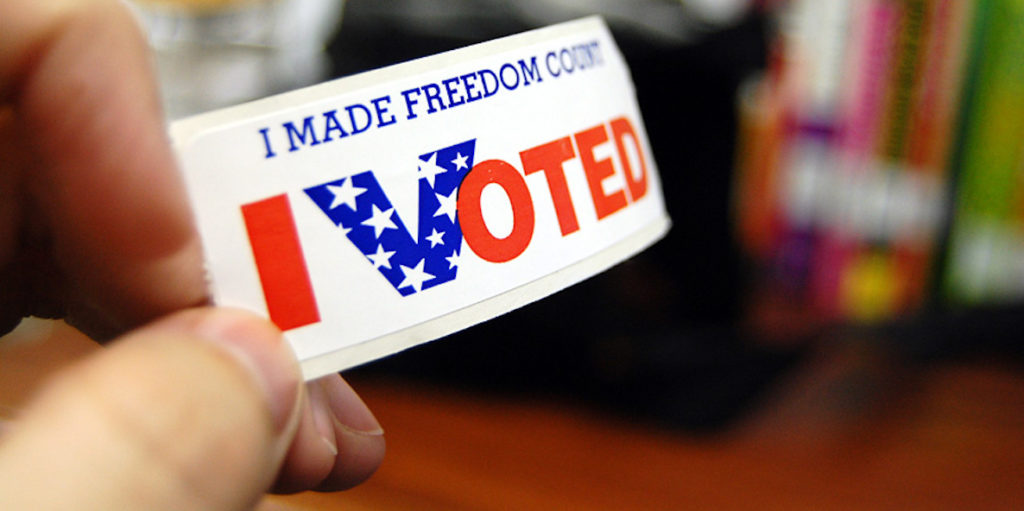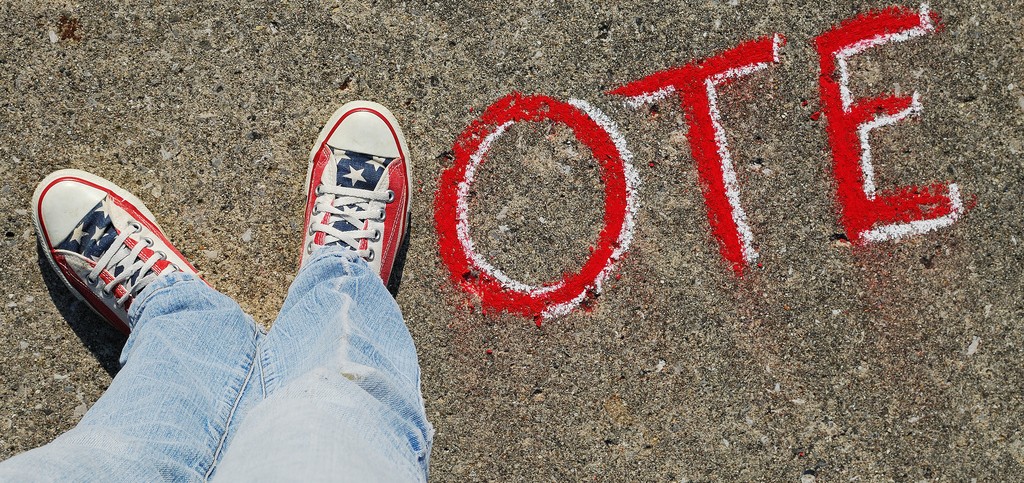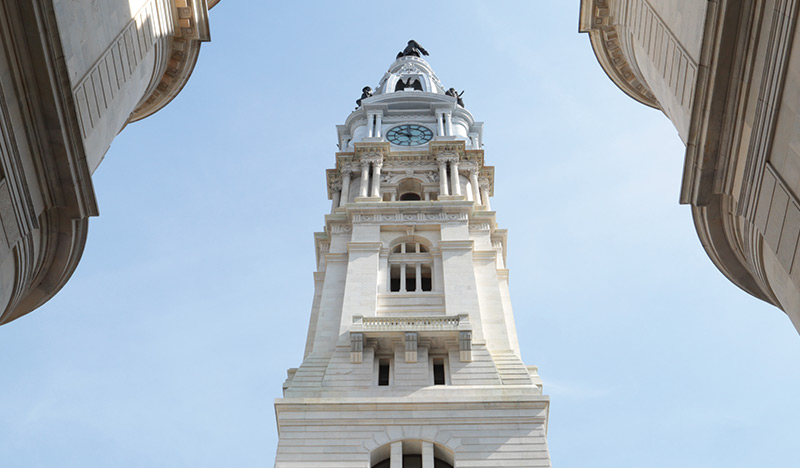May 21, 2019 is a Primary Election, meaning Philly voters will select candidates from the Democratic and Republican parties to face off in the November general election. When it first came into widespread use, the primary was seen as a progressive attempt to wrest candidate selection out of the hands of party leaders, who used to decide such things in smoke-filled back rooms.
In Philly, where the Democratic Party has dominated since the 1950s, registered Republicans generally have fewer candidates to choose from in these elections. While it would be irresponsible to say it’s inevitable that the winner of the Democratic primary will win in the November general election, history shows it’s practically inevitable.
Can I Vote In This Election?
Are you registered to vote in Pennsylvania as a resident of Philadelphia? If so, the short answer is, yes. (If you’re not sure about your registration status, check here.) Even if you are not registered with either major party, you can absolutely vote … on the ballot questions. That’s still pretty important. If approved by a simple majority of voters, these amendments to the city charter will become law. More on those below.
But when it comes to the candidates, only registered Democrats and Republicans are allowed to vote. Why? Because PA is one of just 12 states that runs what’s called a “closed primary,” where only party members can vote on their candidates for the November general election.
Side Note: Not a fan of that system? Let your state representatives and senators know. There are other options. Many states have open primaries, where voters of any affiliation may select a single party’s ballot and vote for candidates. Other states offer semi-closed primaries, where voters must be registered to a party to vote that ballot, but may switch their affiliation day-of.
When are the polls open?
Polls are open from 7am to 8pm. Remember that you can get in line to vote before 7am, and you can vote as long as you were in line before 8pm, even if you don’t get into the actual voting booth until later. Also remember: Polling places change, so make sure you know where to go by checking with the state.
Why should I vote in this election?
-
- You believe healthy competition is good for democracy. If competitive

- You care about crime, education, gentrification, fair elections, workers rights, property assessment, bike infrastructure, public health, small business … You get the idea. The field might be a bit overwhelming (we’re here to help), but it’s not hard to make a case for the importance of this election cycle, which includes Mayoral and Council elections. We are electing the political heads of our legislative and executive local government — the lawmakers and the implementers. In this guide, we’ll try to get you up to speed on the other other important offices you’ll be voting for alongside those big categories.
- There is one candidate in particular you want to support. Several of the offices you’ll be voting for allow multiple selections. For example, you can vote for up to five candidates in the case of Council At-Large. But maybe there’s just a single At-Large, judge, or commissioner candidate you want to support. It’s ok to leave those other votes on the table. It’s called bullet voting, and while it may be a callus term in a city with a gun violence problem, a study of the 2015 election also suggests it might be smart strategy.
- You believe healthy competition is good for democracy. If competitive
What’s with all these judicial candidates?
Pennsylvania is one of only eight states that elect judges through partisan elections at all trial court levels. If you don’t recognize a single name in these races, or you feel a little unqualified to determine their ability to serve as an impartial judge, you’re in good company. We recommend deferring to the recommendations from the Pennsylvania Bar Association (Superior Court Judges) and the Philadelphia Bar Association (Common Pleas and Municipal Court Judges). Their judicial commissions aim for nonpartisan review of each candidate based on extensive study of their track record, and temperament. We’ve listed their overall recommendation next to each judicial candidate, but you can also read more detailed assessments at the links above. It’s like Consumer Reports for judges.
All caught up? Great. Here’s what you’ll see on your ballot and what it means:
Judge of the Superior Court
The PA Superior Court is a statewide entity that handles appeals from the Courts of Common Pleas in criminal cases and in matters involving children and families. It usually hands down the final decision in these matters.
Democrat (Vote for up to 2)
Beth Tarasi – “Not Recommended” by PA Bar Association
Daniel D. McCaffery – “Highly Recommended” by PA Bar Association
Amanda Green-Hawkins – “Not Recommended” by PA Bar Association
Republican (Vote for up to 2)
Rebecca Warren – “Not Recommended (for failure to participate)” by PA Bar Association
Meghan McCarthy King – “Recommended” by PA Bar Association
Christylee Peck – “Recommended” by PA Bar Association
Judge of the Court Of Common Pleas
This is PA’s court of general trial jurisdiction. Philadelphia’s 90 Common Pleas Court judges are divided into trial, family, and orphans’ divisions.
Democrat (Vote for up to 6)
Anthony Kyriakakis – “Highly Recommended” by Philadelphia Bar Association
Tiffany Palmer – “Highly Recommended” by Philadelphia Bar Association
Wendi Barish – “Recommended” by Philadelphia Bar Association
James Berardinelli – “Recommended” by Philadelphia Bar Association
Laurie Dow – “Recommended” by Philadelphia Bar Association
Craig Levin – “Recommended” by Philadelphia Bar Association
Vicki Markovitz – “Recommended” by Philadelphia Bar Association
Cateria R. McCabe – “Recommended” by Philadelphia Bar Association
Kendra McCrae – “Recommended” by Philadelphia Bar Association
Jennifer Schultz – “Recommended” by Philadelphia Bar Association
Nicola F. Serianni – “Recommended” by Philadelphia Bar Association
Henry McGregor Sias – “Recommended” by Philadelphia Bar Association
Kay Yu – “Recommended” by Philadelphia Bar Association
Terri Michelle Booker – “Not Recommended” by Philadelphia Bar Association
Sherman Toppin – “Not Recommended” by Philadelphia Bar Association
Gregory Weyer – “Not Recommended” by Philadelphia Bar Association
Joshua Roberts – Not listed on Philadelphia Bar Association as of May 1
Jon Marshall – Not listed on Philadelphia Bar Association as of May 1
James Crumlish – Not listed on Philadelphia Bar Association as of May 1
Leon Goodman – Not listed on Philadelphia Bar Association as of May 1
Robert Trimble – Not listed on Philadelphia Bar Association as of May 1
Chris Hall – Not listed on Philadelphia Bar Association as of May 1
Janine Momasso – Not listed on Philadelphia Bar Association as of May 1
Carmella Jaquinto – Not listed on Philadelphia Bar Association as of May 1
Republican (Legally you can vote for up to 9. Practically, you can vote for up to 1)
Beth Grossman – “Recommended” by Philadelphia Bar Association
Judge of the Municipal Court
At this first level of PA’s judiciary, Philadelphia’s Municipal Court judges decide whether serious cases move to the Commonwealth Court, conduct preliminary hearings and arraignments, and set and accept bail in most cases.
Democrat (Vote for up to 2)
David Conroy – “Recommended” by the Philadelphia Bar Association
Theresa Brunson – Not listed by the Philadelphia Bar Association
Mayor
The executive head and top political figure in the city. Incumbent Mayor Kenney is running for his second four-year term in office, the limit established by our revised City Charter in 1951
Democrats will pick one candidate: Current incumbent Jim Kenney, State Senator and perennial candidate Anthony Williams, or former City Controller Alan Butkovitz.
Republicans have an all or nothing proposition in this race. As in, it’s all Billy Ciancaglini, or nothing.
City Commissioners
These officials are in charge of manning Philly’s Bat Signal. I’m kidding, of course. Obviously that’s the police commissioner’s job. The three bipartisan City Commissioners handle something just about as important: the administration and integrity of Philly’s elections in compliance with federal and state laws. They also set policies for voter registration within those federal and state boundaries. As mentioned at the top of the guide, they are also in charge of selecting and implementing a brand new batch of voting machines, following a directive from Governor Wolf to ensure all Pennsylvania counties use machines that leave a paper trail.
While the role is effectively nonpartisan, voters in each party are allowed to select up to two candidates, guaranteeing a seat for the minority party. First term incumbent Lisa Deeley (D) is up against a thick field for reelection. Candidates are also seeking the seat that will be vacated in January by the other Democrat, Anthony Clark. Though, as several news outlets have reported over the years, his seat has been pretty empty for a while.
Democrat (Vote for up to 2)
Marwan Kreidie
Omar Sabir
Lisa Deeley
Luigi Borda
Dennis Lee
Annette Thompson
Khalil Williams
Carla Cain
Warren Bloom
Moira Bohannon
Robin Trent
Jen Devor
Lewis Harris, Jr.
Republican
Al Schmidt – Incumbent
Register of Wills
If you need a marriage license, or to legally establish the validity of your will, you need to visit the Register of Wills. Like the City Commissioners office, some have questioned whether it’s necessary to elect such an administrative function. However, unless there is a referendum brought to change, this office technically lives outside the City’s control.
Where there is no will on file, the office also determines ownership of an estate. For many longtime residents, especially those in gentrifying neighborhoods, this isn’t as straightforward as it appears. Many second or third generation homeowners are running into “tangled title” issues, often losing a major piece of equity they had counted on. Ingra Saffron broke the issue down well in a 2017 article, and at least one challenger has resolved to address it.
Incumbent Ronald Donatucci, who has headed the office for 11 consecutive terms since 1980, faces two challengers. There is no Republican counterpart.
Democrat (Vote for 1)
Tracey Gordon
Jacque P Whaumbush
Ronald Donatucci
Sheriff
Another row office vestige like the Register of Wills, the Sheriffs office supports the Philadelphia court system by serving warrants, providing transport of prisoners to court, and guarding courthouses. The office also runs sheriff sales for foreclosed homes and collects delinquent taxes. While incumbent Jewell Williams claims an instrumental role in reducing the delinquent tax gap in Philadelphia, others have expressed concerns about a lack of oversight and ballooning budget.
As Roxanne Patel Shepelavy explained back in April, there is more to this particular race than the merits and methods of the office itself. Williams has been accused by three women of sexual harassment, settling two suits to the tune of $157,000 in taxpayer money. Undaunted, the Democratic City Committee announced it would endorse Williams’ reelection campaign regardless. After serious blowback, the DCC retracted the endorsement. Perhaps solidifying their status as political relic, the party declined to endorse any of the remaining candidates, which include two women.
Democrat (Vote for 1)
Rochelle Bilal
Malika Rahman
Larry King, Sr.
Jewell Williams
Council At-Large
Philadelphia City Council consists of 17 members split into two types. Seven are elected “at large,” and are meant to represent the interests and will of the city as a whole within the legislative body. At-Large seats are also intended to tamp down the incentives for vote swapping by councilmembers, and tend to be much more competitive. Because they lack a geographic zone and population of constituents, and are outnumbered by ten District Council Members, these seats are sometimes seen as less powerful than their colleagues. Though, as many of the current group of At-Large members have shown in the past four years, that doesn’t have to be the case.
Democrats can vote for up to five candidates. Two At-Large seats are reserved for the minority party, which effectively means Republicans can vote for up to five but will likely fill just two seats. Combined, there are 35 At-Large candidates on the ballot.
Democrats (Vote for up to 5)
Adrian Rivera-Reyes
Deja Lynn Alvarez
Helen Gym
Ogbonna Paul Hagins
Fernando Trevino-Martinez
Eryn Santamoor
Joseph A Diorio
Hena Veit
Billy Thompson
Beth Finn
Latrice Bryant
Allan Domb
Katherine Gilmore Richardson
Erika Almiron
Bobbie Curry
Isaiah Thomas
Vinny Black
Wayne Edmund Dorsey
Edwin Santana
Mark Ross
Devon Cade
Sandra Dungee Glenn
Derek S Green
Justin DiBerardinis
Fareed Abdullah
Asa Khalif
Ethelind Baylor
Republicans (Vote for up to 5)
Al Taubenberger
Dan Tinney
Matt Wolfe
Bill Heeney
David Oh
Drew Murray
Irina Goldstein
District Council
District Council seats are meant to guarantee representation for geographically based groups. These members are supposed to be more in tune with the needs of their constituents, and often engage in constituent services beyond their legislative capacity. They also wield a lot of influence over land deals in their district through a de facto power dubbed “councilmanic prerogative.”
If the concept of prosecutorial discretion captivated reform-minded voters during 2017’s District Attorney race, councilmanic prerogative could be this year’s civic mouthful. Under this handshake agreement, council members defer to their district colleague when it comes to zoning variances and land sale approvals in a given district. Councilmembers claim their deference reflects the idea that each member knows their district best. Opponents argue it’s an over-exploited loophole that undermines necessary checks and balances. Prerogative has been in the news a lot lately, but it remains to be seen if it will rise to the level of an election issue.
You will only be able to vote for one of the remaining 10 District Council Members.
Democrats (Vote for 1 on your district ballot)
District 1: Incumbent Mark Squilla faces challenger Louis Lanni
District 2: Incumbent Kenyatta Johnson faces challenger Lauren Vidas
District 3: Incumbent Jannie Blackwell faces challenger Jamie Gauthier
District 4: Incumbent Curtis Jones faces challengers Ron Adams
District 5: Incumbent Council President Darrell Clarke is unopposed
District 6: Incumbent Bobby Henon, indicted by Federal prosecutors in January of this year, is running unopposed after two would-be challengers failed to file the 750 signatures required to run on time.
District 7: Incumbent Maria Quinones-Sanchez faces challenger Angel Cruz
District 8: Incumbent Cindy Bass is unopposed
District 9: Incumbent Cherelle Parker is unopposed
District 10: In this Republican-held District, Judy Moore is unopposed in the Democratic primary.
Republicans (Vote for 1 on your district ballot)
District 1: Daniel Orsino is running unopposed
District 2: Michael Bradley is running unopposed
District 6: Pete Smith is running unopposed
District 10: Incumbent Brian O’Neill is running unopposed
Ballot Questions
Remember, you DO NOT need to be registered as a Democrat or Republican to vote on ballot questions. Getting a city charter amendment on the ballot requires a two-thirds vote of City Councilmembers. Once they are on the ballot, it takes just a simple majority (i.e. greater than 50 percent) of “yes” votes by the public for each amendment to become law.
Proposed Charter Change Question #1
Shall The Philadelphia Home Rule Charter be amended to change certain gender specific references (such as “councilman,” “councilmen,” and “Councilmanic”) to gender neutral references (such as “councilmember,” “councilmembers,” and “Council”)? Yes / No
It’s 2019, and Philly is way behind on these language changes. Though this author has always enjoyed the evocative oomph of the manic in councilmanic prerogative.
Proposed Charter Change Question #2
Shall The Philadelphia Home Rule Charter be amended to establish and define the functions of the Office of Immigrant Affairs, headed by a Director of Immigrant Affairs? Yes / No
Philadelphia’s foreign-born population has been a driving force in the city’s comeback since immigration rebounded from an all-time low in the 1990s. The Office of Immigrant Affairs has existed since 2016, when Mayor Kenney created it with an executive order. If approved, this referendum would ensure the office remains a permanent fixture under the next administration.
Proposed Charter Change Question #3
Shall The Philadelphia Home Rule Charter be amended to call on the General Assembly to either increase the Pennsylvania minimum wage now, so that it reaches $15 an hour, in stages, by 2025; or allow the City of Philadelphia to itself provide for a decent, family sustaining, living wage for working Philadelphians? Yes / No
How do you get a public opinion poll in front of hundreds of thousands of voters? If you’re City Council, you pose an amendment to the City Charter to do something only the state can do right now—change the minimum wage. Nothing happens, but the results get written into the Charter for posterity. Whether you view this as a clever way to send a message to Harrisburg, or a needless exercise in charter bloat, you may as well vote as it will be recorded either way.
Proposed Charter Change Question #4
Shall The Philadelphia Home Rule Charter be amended to require the establishment of “Public Safety Enforcement Officers” to assist the Police Department in regulating the flow of traffic; to enforce and assist the appropriate City officers in the enforcement of ordinances relating to the quality of life in the City’s neighborhoods; and to perform such other related duties as the Managing Director or Council may require? Yes / No
This is arguably the most substantive proposal of the batch. Other major cities employ unarmed public safety officers to regulate traffic flow and address other ‘quality of life’ issues on city streets. Think stop-sign rolls and cars parked in bike lanes. The measure, put forth by City Council President Darrell Clarke, has been endorsed by the Bicycle Coalition of Greater Philadelphia, 5th Square, and the Philadelphia Police Department among others. The vague provision gives a lot of discretion to the Managing Director, including the size of the force and pay structure.



